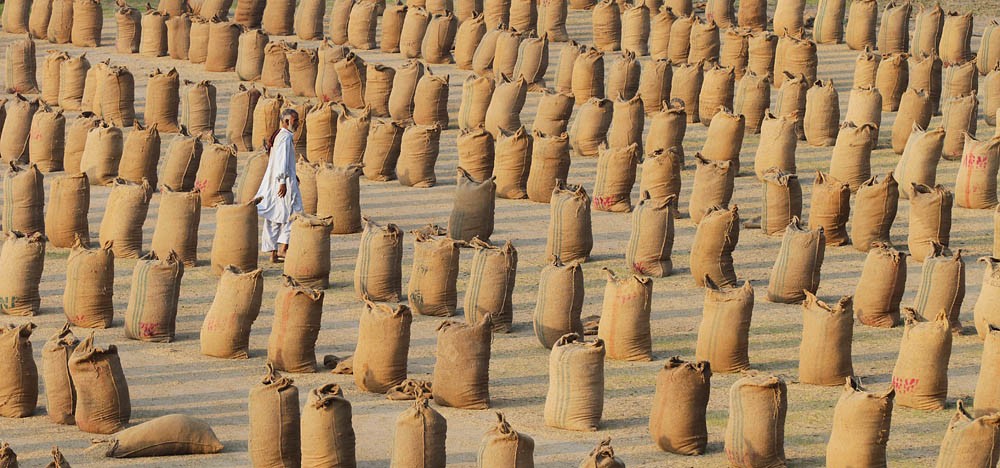
Equitable and respectful use of natural resources is imperative for rural livelihoods and food security

The continuing endeavour for a UN declaration is a very serious undertaking to focus on obligations of communities and states, separately and collectively in local, regional and global organisations. It is a privilege to salute Via Campesina along with many others in the international community for their sustained commitments and efforts to initiate and safeguard global processes that recognise, protect and promote the rights of peasants and other rural labour.
The International Day of Peasants is the right opportunity to emphasise the need for explicit and comprehensive provisions in the declaration with regard to landless labour: such as tenant farmers, marginal landowners, field workers, fishers, pastoralists, and foresters. Through our constant actions, states must be persuaded to give up hiding behind ‘conditionalities’ imposed by international finance capital, and the UN should ensure that banks and trade urgently commence to respect entitlements of labour.
The global mass malnourishment is an obscenity. It can be overcome only by acknowledging -- as Via Campesina has stressed again and again -- that the people’s right to food security is truly a right of people to food sovereignty. Attaining and sustaining this sovereignty requires secure access to adequate and appropriate productive land, water and forests.
Sweeping agrarian reforms as redistribution of private, and of public wealth are certainly needed to realise autonomy in rural livelihoods and hence in access to natural resources as a form of social protection. However hard we try, implementing such reforms will take time. Our note attempts to draw attention to interim actions required of states to substantively reduce the suffering of landless labour.
All of us recognise the urgency of banning grabs of natural resources -- land, forests and water -- by entirely uncalled for ‘development’ projects. Export obsessions are a specially ominous policy; energy security is fast becoming a major threat. Should we laugh or cry when states empower markets to profit from hydro power as renewable energy? We must ensure that the declaration will strongly protect the rights of labour against dilution and dispossession of access to natural resources.
Informed consent for parting with land cannot be restricted to owners, ignoring the larger numbers of landless whose livelihoods are threatened by legal land acquisition. We must recognise the dispossession of numerous livelihoods that occurs deviously by reducing access to water under various guises of public projects. South Asia is one example for UN action against states harassing and even demonising citizens against resistance to dispossession, by illegitimate inclusion of resistance as terrorism against the state.
The declaration must create safeguards against state-subsidised market processes that threaten food sovereignty. One illustration from South Asia is the provision of irrigation water and credit which incentivises crops for expanding exports, such as premium rice varieties (Basmati), sugarcane and cotton. This allocation of water essentially means a diversion away from crops that form staples in local diets. Perversity is apparent in state policy which both imports and exports wheat; and imports onions, garlic and pulses as an example. Allocations of water have additional negative impacts such as increasing the volume of chemically laden downstream water for both inland and marine fisheries.
As in most countries, family farms produce most of the food. Many observers call for focus on public spending towards family farms, including infrastructure and credit. We believe that more attention needs to be paid towards the tenurial composition of family farms. Small landowners have some freedom to choose crops and thereby have a bit of security in access to food. But the net buyers of food are many more.
We call for the declaration to ensure safeguards in particular for landless tenants who are mostly sharecroppers and therefore extremely vulnerable to decisions of (large) landowners. Such tenants are no longer permitted by landowners to enough acreage to satisfy their food needs directly through edible crops, and through feed crops for dairy livestock. We must recognise that landless farm workers naturally suffer through less earnings of wages in kind. Such suffering can be traced to subsidised mechanisation of farming.
Another alarming consequence of mechanisation is that sharecroppers are pushed to grow less food crops in order to meet their share of cash costs. Forced towards chemical farming, sharecroppers and other landless are denied healthier organic food and sharecroppers are forced into debt bondage.
We end by reiterating the vision of Via Campesina for rural livelihoods based on equitable and respectful use of nature. Realisation of this vision calls for more substantive democracy, which can be secured only through more equitable access and precautionary use of natural resources. State obligations must therefore focus on promoting agroecology and restraining commercial and industrial expansion that threatens to negate policies for food sovereignty.